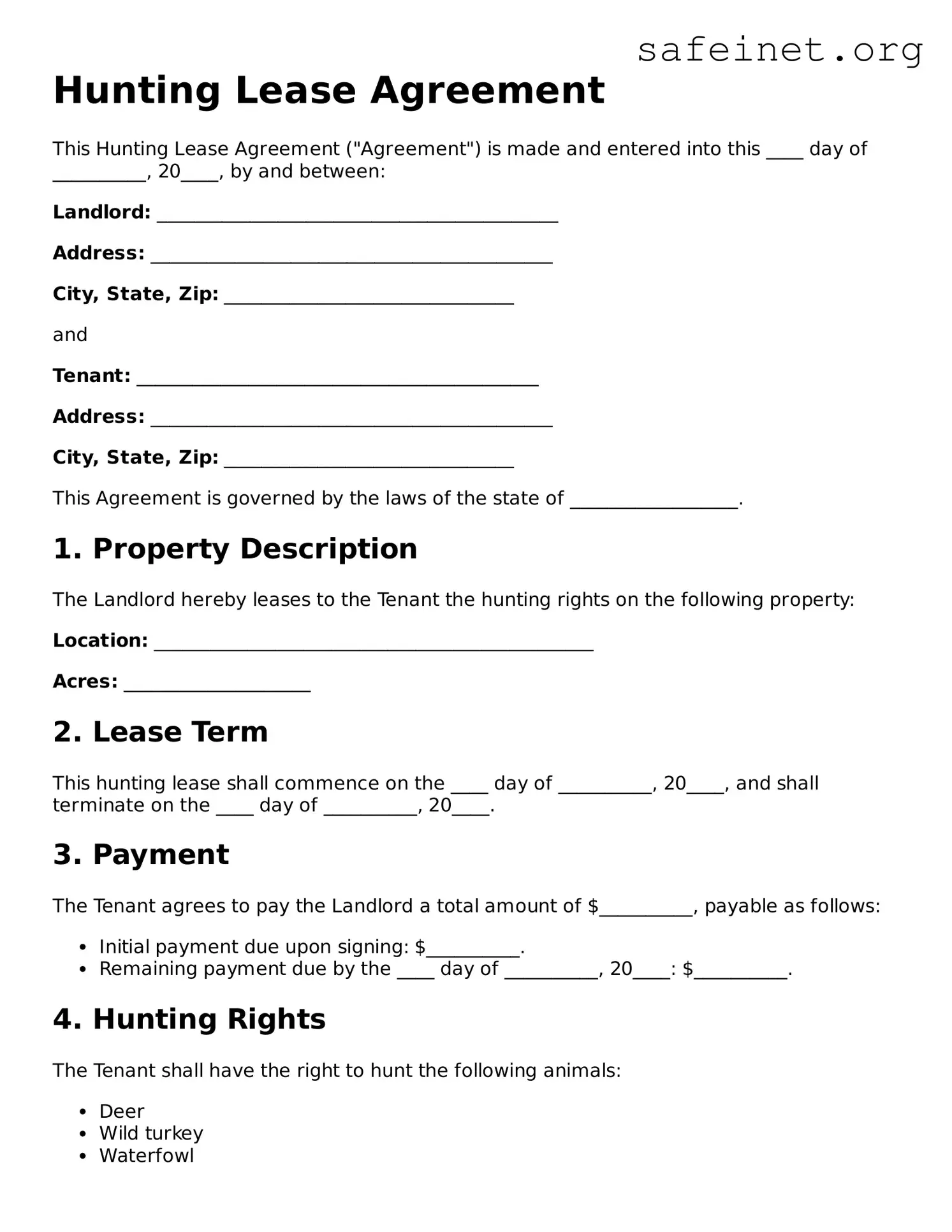Hunting Lease Agreement
This Hunting Lease Agreement ("Agreement") is made and entered into this ____ day of __________, 20____, by and between:
Landlord: ___________________________________________
Address: ___________________________________________
City, State, Zip: _______________________________
and
Tenant: ___________________________________________
Address: ___________________________________________
City, State, Zip: _______________________________
This Agreement is governed by the laws of the state of __________________.
1. Property Description
The Landlord hereby leases to the Tenant the hunting rights on the following property:
Location: _______________________________________________
Acres: ____________________
2. Lease Term
This hunting lease shall commence on the ____ day of __________, 20____, and shall terminate on the ____ day of __________, 20____.
3. Payment
The Tenant agrees to pay the Landlord a total amount of $__________, payable as follows:
- Initial payment due upon signing: $__________.
- Remaining payment due by the ____ day of __________, 20____: $__________.
4. Hunting Rights
The Tenant shall have the right to hunt the following animals:
- Deer
- Wild turkey
- Waterfowl
- Other: ___________________________________________
5. Rules and Regulations
The Tenant agrees to adhere to the following rules:
- Hunting season regulations must be followed as per state law.
- All hunters must possess the appropriate permits and licenses.
- Firearms and bows must be used responsibly and safely.
- No alcohol or drugs are permitted while hunting.
6. Liability
The Tenant agrees to assume all risks associated with hunting on the leased property. The Landlord is not liable for any injuries, accidents, or damages occurring during the term of this Agreement.
7. Governing Law
This Agreement shall be governed by the laws of the state of __________________.
8. Signatures
By signing below, the parties agree to the terms of this Hunting Lease Agreement:
Landlord Signature: _________________________________
Date: ___________________________
Tenant Signature: __________________________________
Date: ___________________________
